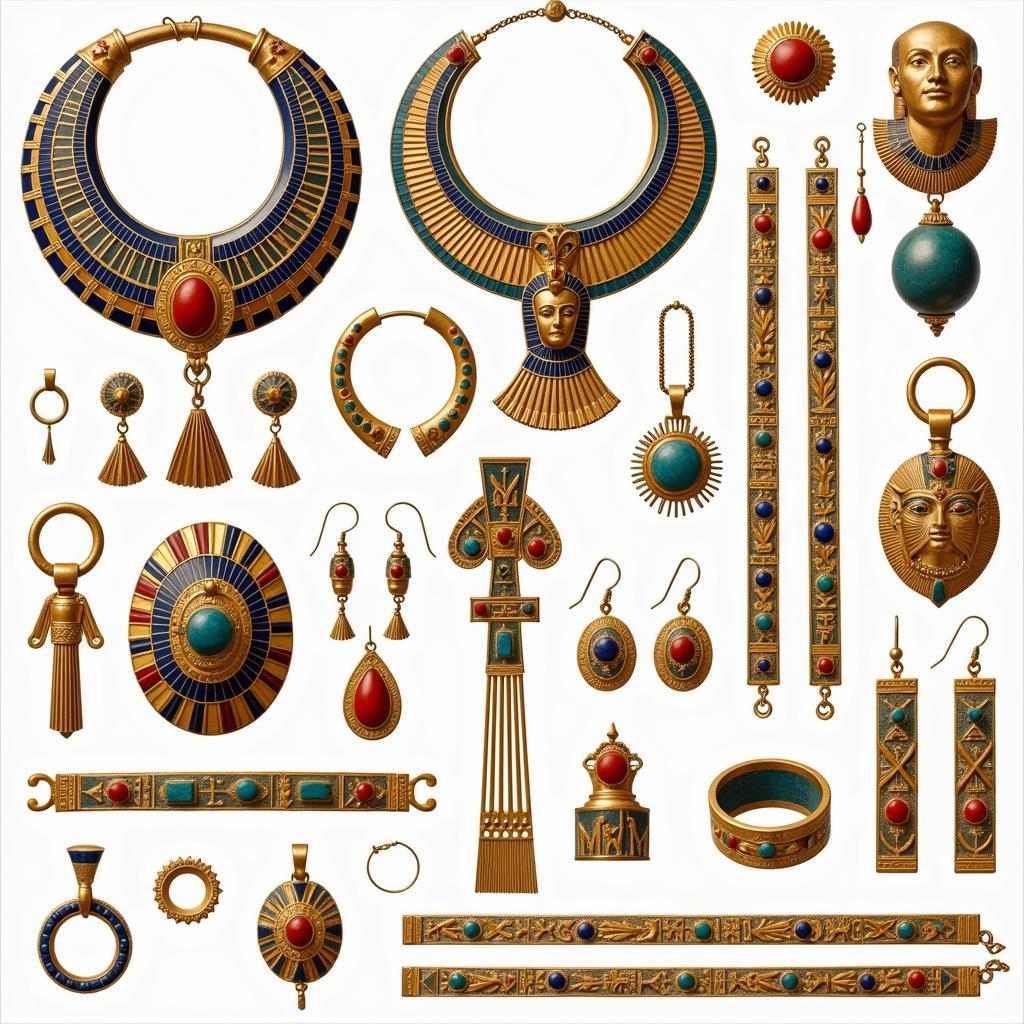Unraveling the Rich Tapestry of African Nigeria: A Cultural Deep Dive
Nigeria, the giant of Africa, is a vibrant tapestry of diverse cultures, languages, and traditions. It’s a land of captivating beauty, rich history, and an infectious spirit that draws people from around the globe. This article takes you on a journey to explore the essence of Nigeria, unraveling its intricate complexities and highlighting its captivating allure.
A Journey Through Time: Exploring the History of Nigeria
Nigeria’s history is a captivating blend of ancient kingdoms, colonial influences, and a fight for independence. From the Nok civilization, known for its terracotta art, to the powerful empires of Oyo and Benin, the land has been shaped by powerful rulers and intricate societal structures.
The arrival of European powers in the 15th century marked a significant shift, with the British establishing colonial rule in the early 20th century. This period saw the introduction of Christianity, Western education, and the establishment of a modern administrative system.
On October 1st, 1960, Nigeria gained independence, marking a pivotal moment in its history. The country embarked on a journey towards self-determination, grappling with political challenges and striving for national unity.
Dr. Adebayo Oladipo, Professor of African History at the University of Lagos, shares his perspective:
“Nigeria’s history is a testament to the resilience and adaptability of its people. Throughout the centuries, they have navigated through various challenges, adapting to the changing global landscape while preserving their unique cultural identity.”
A Symphony of Cultures: Exploring Nigeria’s Ethnic Diversity
Nigeria is a mosaic of over 250 ethnic groups, each with their own distinct language, traditions, and customs. The three major ethnic groups, the Yoruba, Igbo, and Hausa, dominate the landscape, contributing to the rich tapestry of Nigerian culture.
The Yoruba: Guardians of Tradition and Artistic Excellence
The Yoruba people are renowned for their vibrant traditions, intricate art, and rich cultural heritage. They are known for their elaborate festivals, colorful textiles, and the intricate art of wood carving. Their traditional music and dance are known for their energy and beauty, captivating audiences worldwide.
The Igbo: Masters of Trade and Entrepreneurship
The Igbo people are known for their entrepreneurial spirit, thriving in trade and commerce. They are renowned for their skillful craftsmanship, particularly in textiles, metalwork, and pottery. The Igbo culture is deeply rooted in community and the importance of family ties.
The Hausa: Guardians of Islamic Tradition and Nomadic Heritage
The Hausa people are known for their Islamic faith and their nomadic heritage. They are skilled farmers, traders, and artisans. Their culture is rich in storytelling, music, and dance, with a strong emphasis on family and community.
A Culinary Journey: Unveiling Nigeria’s Flavorful Delights
Nigerian cuisine is a testament to the country’s vibrant and diverse culture. It’s a blend of flavors, textures, and aromas that reflect the country’s diverse ethnic heritage.
Jollof Rice: A National Treasure
Jollof rice is a staple dish in Nigeria, enjoyed across different ethnic groups. This flavorful rice dish is cooked with tomatoes, onions, spices, and often includes meat, fish, or vegetables. It’s a true symbol of Nigerian culinary tradition and a delicious way to experience the country’s rich gastronomic heritage.
Suya: A Street Food Delight
Suya is a popular street food in Nigeria, consisting of grilled skewers of meat, seasoned with a blend of spices. It’s a flavorful and satisfying snack that’s enjoyed by locals and visitors alike. The unique blend of spices, including suya spice, creates a tantalizing aroma that draws people from all corners of the country.
Fufu: A Versatile Staple
Fufu is a starchy dough made from pounded yams, cassava, or plantains. It’s a versatile dish that can be served with a variety of soups and stews. Fufu is a staple food in many Nigerian households, reflecting the country’s agricultural heritage and the importance of traditional culinary practices.
A Feast for the Senses: Exploring Nigeria’s Artistic Expressions
Nigeria’s artistic expressions are as diverse as its cultural landscape. From vibrant textiles and intricate sculptures to captivating music and captivating dance, the country’s artistic heritage reflects its rich history and traditions.
Adire: The Art of Indigo Dyeing
Adire is a traditional indigo dyeing technique practiced by the Yoruba people. It involves resist dyeing, where intricate patterns are created on fabric using starch, wax, or other materials. The resulting fabrics are vibrant and colorful, representing the beauty and creativity of Nigerian artistry.
Sculpture: Capturing the Essence of Tradition
Nigeria is renowned for its intricate and expressive sculptures. From the terracotta figures of the Nok culture to the bronze castings of the Benin Kingdom, Nigerian sculptures showcase the country’s artistic skill and deep connection to spirituality.
Music: A Rhythmic Symphony of Life
Nigerian music is a vibrant blend of traditional and modern influences. From the highlife music of the 1960s to the contemporary Afrobeat and hip hop scenes, Nigerian music reflects the country’s evolving cultural landscape. The rhythm and energy of Nigerian music have a profound impact on audiences worldwide.
Beyond the Surface: Understanding Nigerian Values and Customs
Nigerian culture is deeply rooted in community, respect, and a strong sense of family. It’s a culture that places high value on hospitality, generosity, and the importance of shared experiences.
Hospitality: A Fundamental Value
Hospitality is a cornerstone of Nigerian culture. Visitors are welcomed with open arms, treated with respect, and made to feel comfortable. This warm hospitality reflects the deep sense of community and the importance of sharing with others.
Respect for Elders: A Deep-Rooted Tradition
Respect for elders is a deeply ingrained value in Nigerian culture. Elders are seen as repositories of wisdom and guidance, and their opinions are highly valued. This respect for elders reinforces the importance of family ties and the transmission of cultural knowledge across generations.
Traditional Festivals: Celebrating Life and Culture
Nigerian festivals are vibrant celebrations of life, culture, and community. These festivals offer a glimpse into the country’s rich heritage, showcasing traditional music, dance, costumes, and rituals. The festivals provide an opportunity for people to come together, connect with their cultural roots, and celebrate their shared traditions.
A Journey of Discovery: Exploring Nigeria’s Enchanting Beauty
Nigeria is a land of stunning natural beauty, from the lush rainforests and rolling savannahs to the majestic mountains and the vast Atlantic coastline.
The Niger Delta: A Land of Natural Wonders
The Niger Delta is a region of immense natural beauty, home to diverse ecosystems, rich biodiversity, and abundant wildlife. The region is known for its vast mangrove swamps, dense rainforests, and rich birdlife.
The Jos Plateau: A Mountainous Oasis
The Jos Plateau is a mountainous region in central Nigeria, characterized by rolling hills, breathtaking views, and a cool climate. The region is home to a variety of rock formations, waterfalls, and wildlife.
The Lekki Conservation Centre: A Haven of Nature
The Lekki Conservation Centre is a nature reserve located in Lagos, offering a tranquil escape from the city bustle. The center features a diverse range of plants and animals, including monkeys, birds, and reptiles.
Nigeria: A Nation of Endless Possibilities
Nigeria is a nation of immense potential, brimming with cultural richness, natural beauty, and an indomitable spirit. It’s a country that continues to captivate and inspire people around the world, offering a glimpse into the heart of Africa.
FAQs (Frequently Asked Questions)
1. What are some of the most popular tourist destinations in Nigeria?
- Lagos, Abuja, Kano, Obudu Cattle Ranch, Yankari National Park, and the Osun Sacred Grove are popular destinations for visitors.
2. What are some essential tips for traveling to Nigeria?
- Get a visa in advance, learn basic phrases in local languages, respect local customs, and be aware of your surroundings.
3. What is the best time to visit Nigeria?
- The best time to visit Nigeria is during the dry season, which typically runs from November to April.
4. What are some of the most popular Nigerian dishes?
- Jollof rice, suya, fufu, egusi soup, and okra soup are among the most popular Nigerian dishes.
5. What are some of the best places to experience Nigerian music and culture?
- Lagos, Abuja, and Calabar are great cities to experience Nigerian music and culture.
6. What are some of the most important cultural events in Nigeria?
- The Osun Oshogbo Festival, the Eyo Festival, and the Durbar Festival are among the most important cultural events in Nigeria.
7. What is the best way to get around in Nigeria?
- Road travel, air travel, and public transportation are common modes of getting around in Nigeria.
For any inquiries or assistance, please contact:
Phone: +255768904061
Email: kaka.mag@gmail.com
Address: Mbarali DC Mawindi, Kangaga, Tanzania
We are available 24/7 to assist you with any questions or requests.


